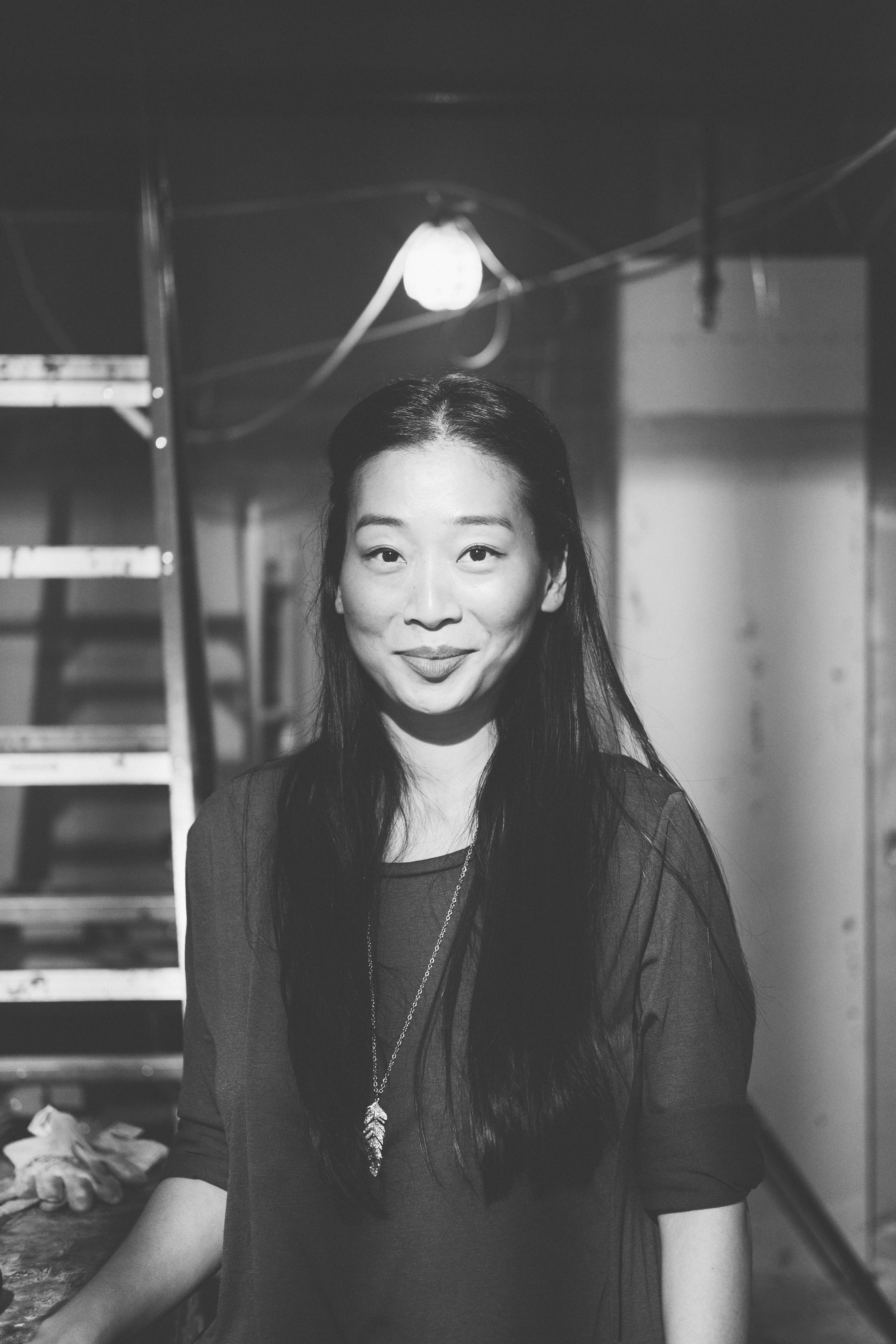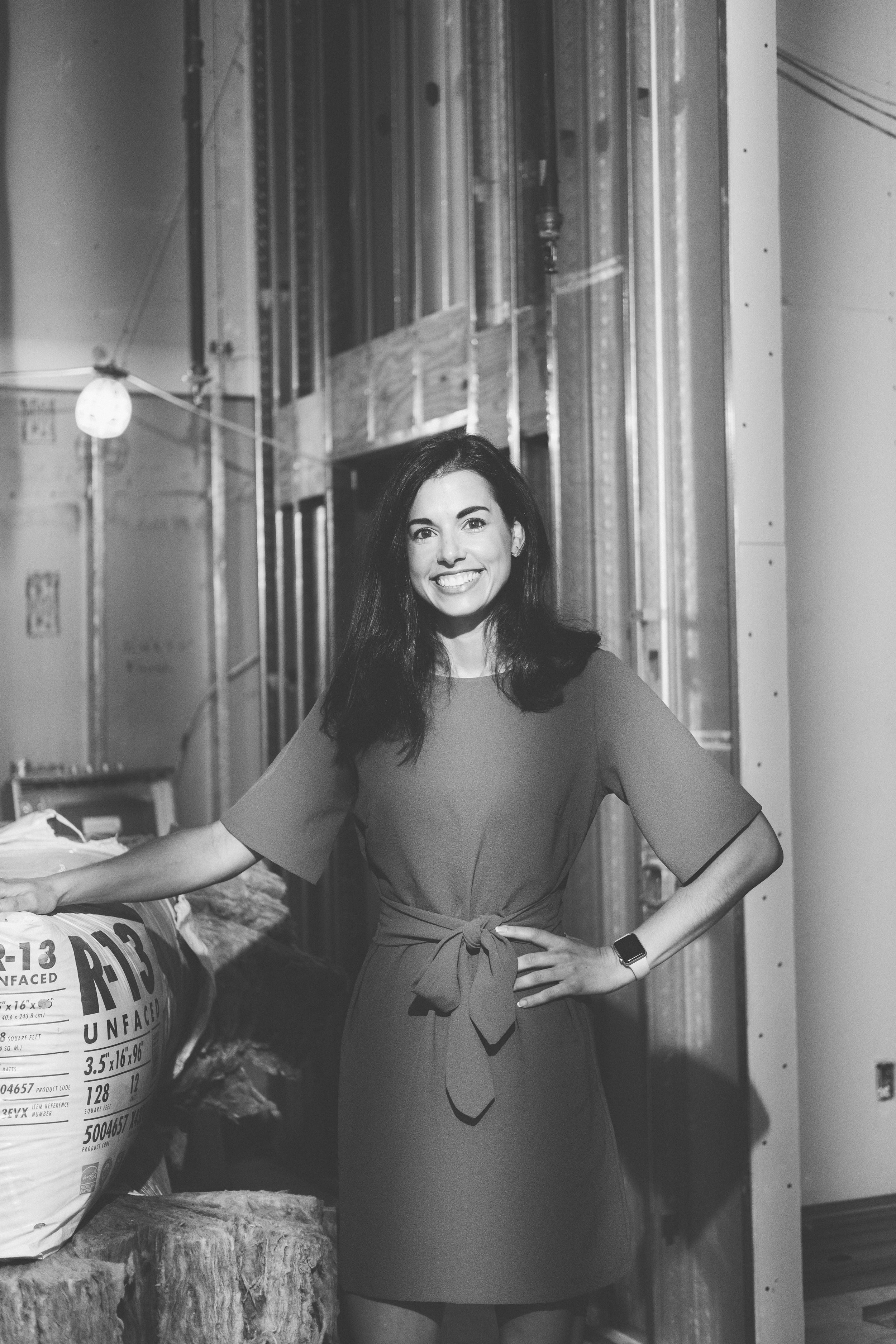Story by Liz Navarro. Photos by Hunter Lacey.
Dr. HaeSung Han and a teenage girl approach a bank teller to open the teen’s first bank account. The student needs a place to deposit the check from her internship. They hand the bank teller the paperwork, and she reads the organization’s name: POETIC School for Girls.
“What’s POETIC?” the bank teller asks, making polite conversation.
“It’s a leadership academy for girls,” Dr. Han explains.
The bank teller smiles at the teen; Dr. Han and the student leave the bank with pride and a checking account.
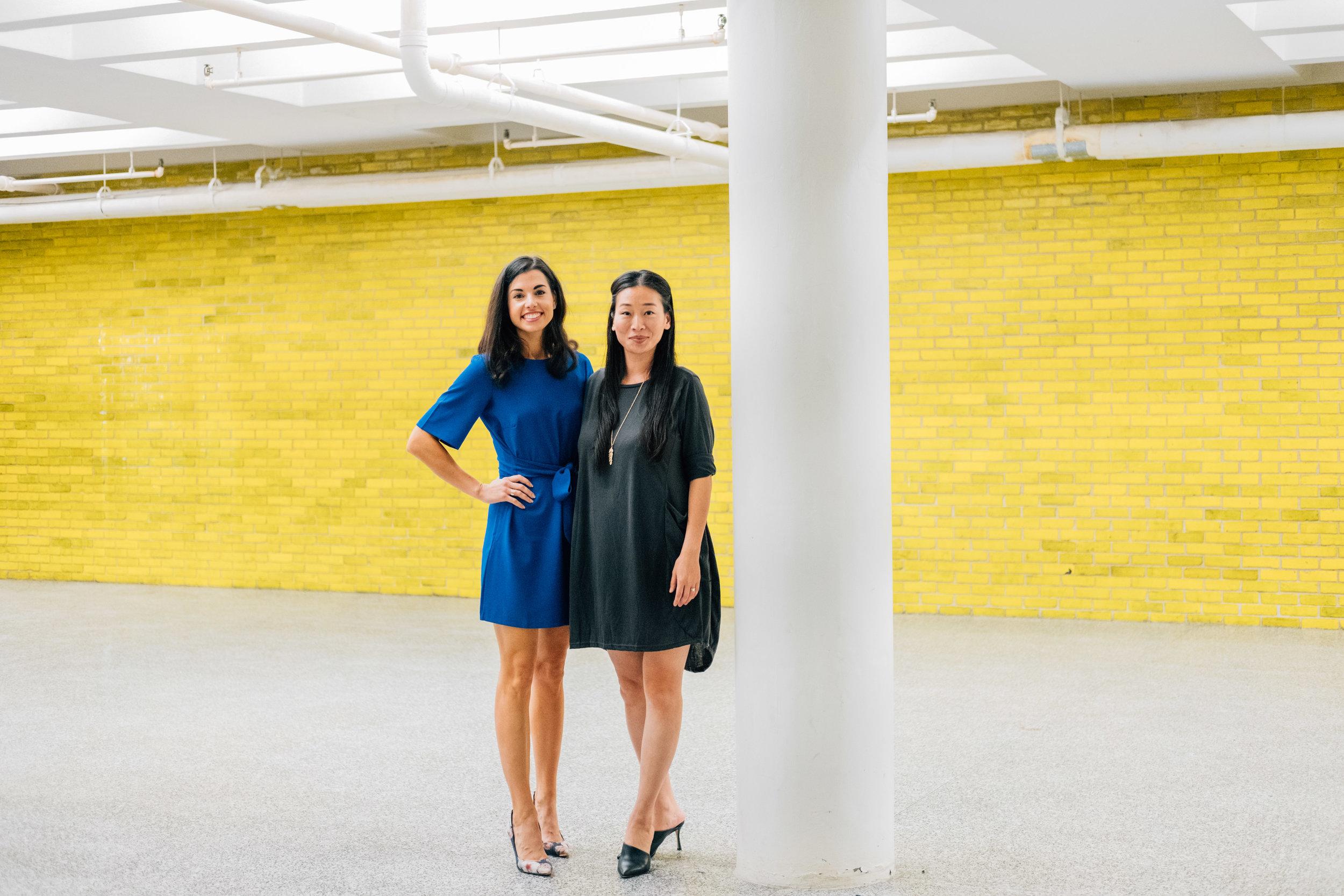
The story of POETIC began a few years before the trip to the bank. Dr. Han was a clinical and forensic psychologist who specializes in trauma and child maltreatment. In 2015, she was working as the clinical director for Dallas County Juvenile Department at the Letot Girls Residential Treatment Center. She served 13 to 17-year-old girls with a history of complex trauma, many of whom were exploited and/or trafficked. During their residency at Letot, she saw the girls begin to thrive as they received support.
“When they didn’t have to struggle for the necessities—a place to sleep, food, safety, they could focus on themselves and their treatment,” Dr. Han explained. However, the necessities and the support were not always waiting for the girls after they were discharged. One-by-one, Dr. Han heard stories of girls who left the program being exploited or trafficked again, picking up adult charges, running away, or missing school.
“The community was ill-equipped to provide the support the girls desperately needed,” Dr. Han recalls. “And there wasn’t a single program in Dallas to provide them with intensive comprehensive aftercare to re-enter the Dallas community.”
Until she co-founded POETIC, that is.
In 2017, Dr. Han met Jennifer Tinker, a woman who was equally energized to find a way to serve girls who were being revictimized. What they saw together was an opportunity to solve a necessary problem in Dallas. Once they recognized it, they didn’t look back.
“When I would see the girls I knew become missing or trafficked—it was heartbreaking. It was something I needed to take action on,” Dr. Han recalled.
Jennifer agreed. With a background in marketing and client services, “I didn’t have the skillset and expertise to directly serve girls and help them work through their trauma history,” she said. “But, I could get the community engaged. I could build relationships.” As it turned out, Jennifer’s skillset would serve as the perfect match to Dr. Han’s expertise—and her personality. Both women quit their full time jobs to co-found POETIC.
“HaeSung and I are like-minded in that we never do anything halfway. We’re either all in, or not at all.” Jennifer said. This is the sentiment that likely led POETIC to where it is today: one of the fastest-growing and most recognized human service nonprofits in Dallas.
From their dining room tables to a borrowed church office and now their current space, Jennifer and Dr. Han crafted their clear vision for POETIC. “What do we need in Dallas?” they asked. “And why do we have such a large problem here?” They started to focus on the systems that lead a girl to exploitation; education, poverty, generational trauma, lack of stability.
Dr. Han explained, “I saw that the educational system was failing our kids, especially those in Dallas. What is interesting is that every youth coming into the juvenile detention would receive a comprehensive evaluation. I found that the majority of the kids I evaluated were significantly behind academically, never receiving academic interventions or accommodations in their schools. The educational system was failing them.”
For many of the girls Dr. Han had worked with, school was also the place where they were victimized, bullied, and/or exploited. “If school was the source of their victimization or objectification, they wouldn’t go.” she explained. “However, school ought to be the exact place where a child begins to develop the building blocks to becoming a successful adult. If a child is not in school, they are on the streets and will receive an education regardless. Unfortunately, the education will be on how to survive the streets, which only perpetuates the cycle of incarceration.”
“At POETIC, we fundamentally believe that education is a right and the ultimate equalizer. That is why we prioritize our girls’ educational attainment and future. If our girls find value in their minds and abilities, receive a high school diploma, and find a renewed sense of confidence, there is nothing that can stop them!” Dr. Han said. That’s why POETIC’s Leadership Academy is central to the POETIC mission.
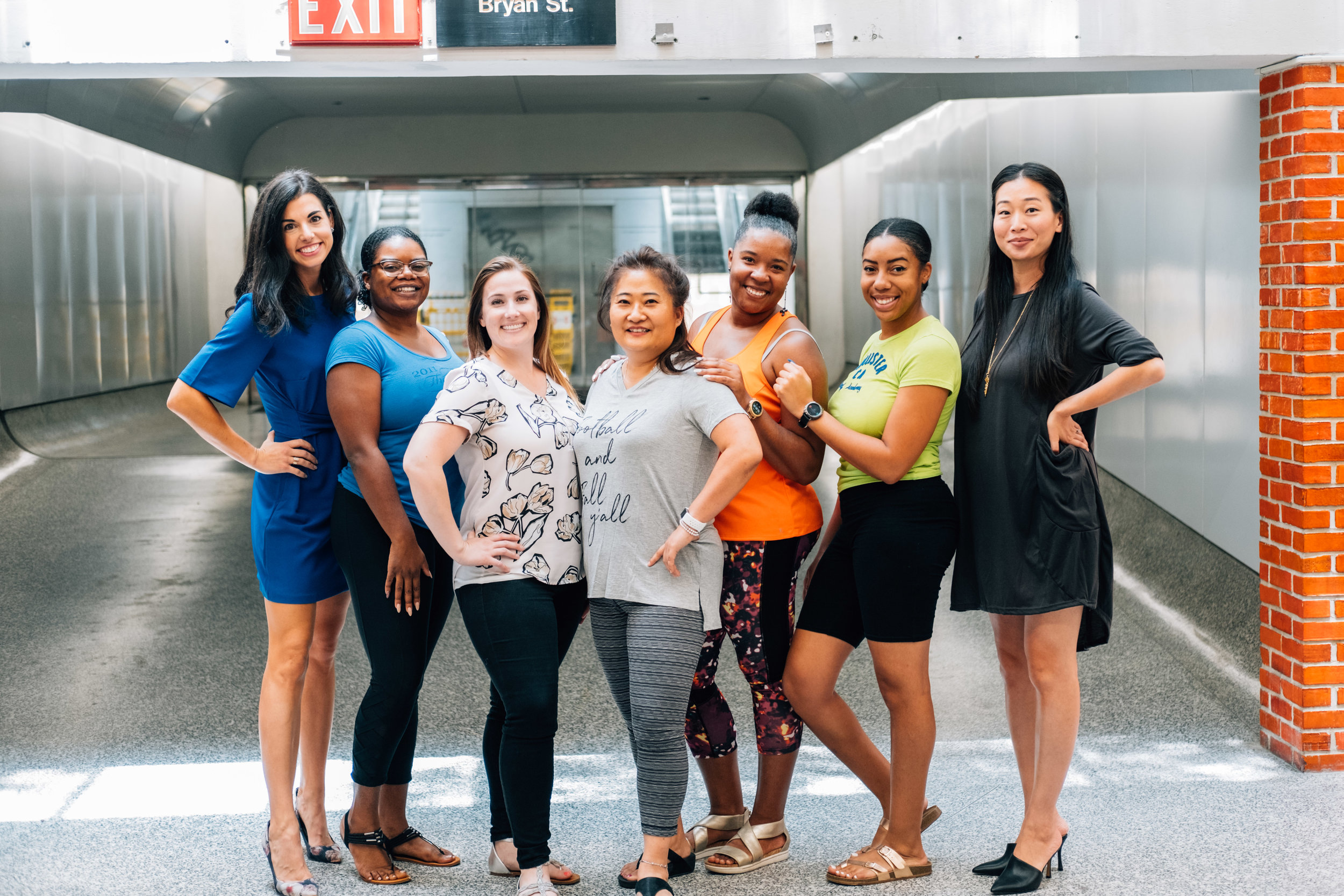
The POETIC team.
If you visit the POETIC website today, you’ll see the organization’s clear purpose summarized in the headline statement: “POETIC builds a pipeline out of the juvenile justice system and into extensive aftercare for girls who have been exploited or trafficked.”
A girl’s journey into the POETIC pipeline isn’t an easy one. It might begin when she’s picked up by the police for an offense, or she’s run away from home or school. Once she enters the juvenile justice system and goes to a detention center, she receives an evaluation. If the evaluator finds that she’s been trafficked or abused, POETIC receives a referral.
The current team at POETIC stretches beyond Dr. Han and Jennifer. They have hired case managers, educators, and mental health clinicians. They work on a ratio of one teacher, one case worker, and one therapist for every ten girls.
“If you look at our staff, we intentionally hire those that know this issue. Four of our team members came from two different Juvenile Justice systems in Texas, and all have worked with girls who have been exploited and trafficked. Some grew up in the same Dallas zip codes as the girls” Dr. Han said. It was important to the co-founders that they create a culture rooted in shared values, equal voices, and an attitude of women empowering women. “It’s all about representation, being culturally aware, and responding to individual needs,” said Dr. Han.
At POETIC, the girls are assigned a case worker and a therapist, attend weekly group therapy sessions, art therapy, and paid internships. They take field trips to museums, college campuses and visit career development opportunities. The girls and their guardians have around-the-clock access to their case manager and therapist, which is essential. Some of the girls live with their families, but some are in foster care and others are homeless.
“Even if they live with a family member or guardian, 100 percent of our girls have experienced housing insecurity,” Jennifer explains. “Each night, when a girl leaves POETIC, there’s no guarantee she’ll make it back the next day. In Dallas, so many of us don’t realize that miles from where we live, there are girls just trying to survive, who don’t know if they’ll make it to school in the morning.”
But, having completed its first full academic year, the POETIC School for Girls is thriving. While the average age of a POETIC girl is fifteen and many are underclassmen, six girls completed their senior year at POETIC and graduated with their high school diplomas this past June. All of the girls are employed. Even those who have turned 18 remain active in the program. “If you’re a part of POETIC and you legally become an adult, you’re still a part of POETIC,” Dr. Han says. They encourage the older girls to take leadership roles; they want the girls who are just starting to be able to see the success they can have.
This year, POETIC was named Social Innovator of the Year by the United Way. Just last week, D CEO magazine and the Communities Foundation honored them as Nonprofit Team of the Year. “We are grateful because we have so much momentum right now,” Jennifer says. “We’ve been in existence for less than two years, but the way the Dallas community has responded validates the need. When we started, we had zero dollars in the bank, a clear vision and passion. We never doubted whether or not POETIC would succeed. When the stakes are this high, when we are talking about life or death for our community’s most vulnerable girls, failure or mediocracy isn’t an option.”
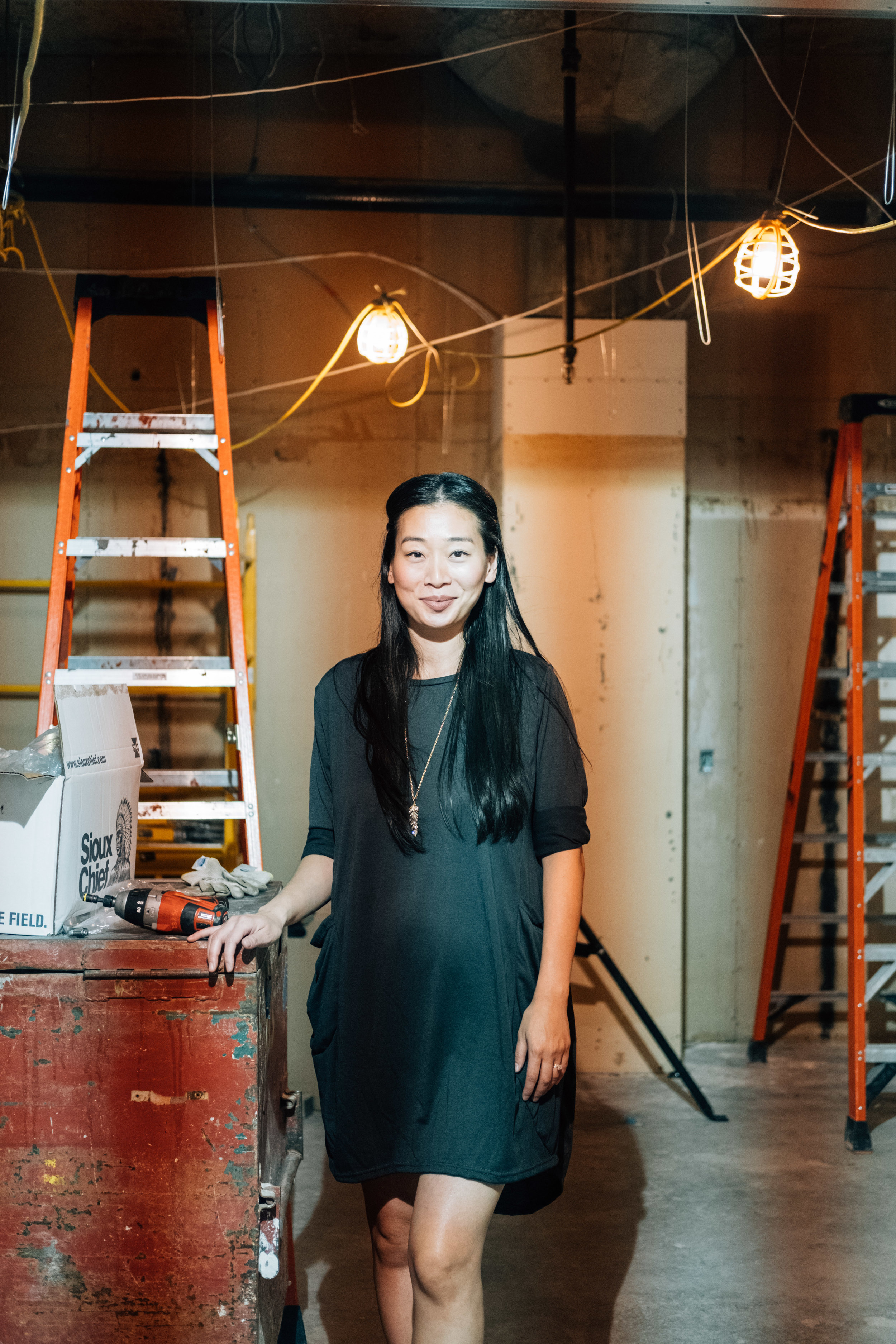
Dr. Han’s and Jennifer’s dedication to this work is palpable. They’re often still working long past 10:00 PM on weeknights and on the weekends. Even so, Jennifer claims, “This isn’t a job for us. It’s our passion.”
They’re using their momentum to expand their space, build out an enhanced classroom and studio, launch an Entrepreneurial Institute, and address the larger systems that will break the cycle of exploitation and trafficking. “Our work is only possible because of the support we’ve received from so many corporate partners. Recently, The Beck Group kicked off a massive pro bono renovation of our Student Center and Classroom. They developed the drawings for the new space and they’re building a brand new kitchen, state of the art learning center, new bathrooms, a clothing closet. In our signed contract, the cost to POETIC is zero dollars. They are truly corporate super heroes!”
And corporate super heroes are needed to help POETIC achieve its vision of a world where every girl is equally valued. “There’s so much that’s robbed from a child who has gone through trauma. Our girls have been robbed of so much that they are at an unfair disadvantage. We are trying to make social and educational reparations through our system-focused programming.” says Dr. Han.
“I think of their lives beyond the trauma. How different could their lives have been if they were surrounded with support instead of pain?” she asks.
This question seems to be the driving force behind the co-founders’ ambition to create changes on a systemic scale and in the lives of the girls at POETIC. They work to give back the parts of their childhood that trauma took away. They protect their girls fiercely; they do not exploit their trauma stories or show their photos. They model a leadership culture of teamwork, female empowerment, and upholding every girl’s right to privacy and integrity.
It’s clear and bold on the POETIC website: “At POETIC, youth are not defined by their circumstances and experiences. Instead, they are empowered to become the authors of their lives.”
That takes us back to the bank.
When Dr. Han and Jennifer named POETIC, they intentionally avoided any words that would cue others to their trauma history. They didn’t want the girls’ circumstances to become their defining characteristic, to overshadow their full stories.
It was important to the co-founders that they name the organization something the girls would be proud of. After all, it could be displayed on their school records. They might need to show it to the teller at the bank when they’re depositing a check from their first paid internship.
“We are not in the business of rescuing anyone. We are in the business of female empowerment and showing the strength, resilience and power of women united to end the cycle of re-victimization for girls. For us, POETIC means your story is not done, it’s constantly evolving and improving, all the while persisting forward.”
If you know someone who is Doing Good in Dallas, we’d love to hear about it! Share their story with us.
